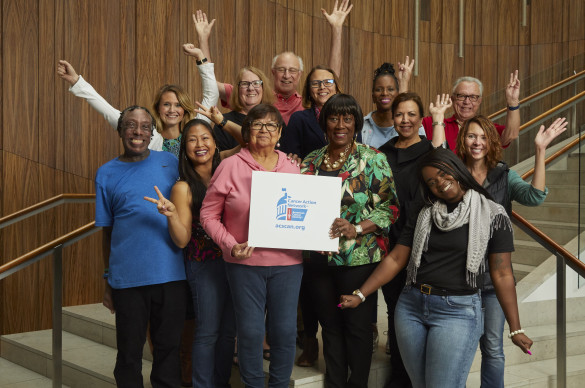American Cancer Society Selects First W.Va. Volunteer To Serve as Research Program Stakeholder
MORGANTOWN – April 29, 2010 — The American Cancer Society recently announced that Gerri Angoli as the first West Virginian to serve as a stakeholder on their Peer Review Grant Committee. She will travel to Atlanta to begin her stakeholder role for a training on May 6-7.
Angoli, a Monongalia county resident, is a four-time cancer survivor who dedicates a majority of her time as a volunteer for the American Cancer Society. Angoli currently focuses her efforts on Relay For Life and advocacy. “Gerri knows the importance of cancer research funding and good allocation. As a longtime dedicated volunteer, Gerri feels the reason she survived cancer was to help other cancer patients. Serving as a stakeholder will enable her to help on a whole other level,” said Juliana Frederick, who works closely with Angoli as the Society’s Grassroots Manager in W.Va.
A stakeholder does not have any formal science training but do have a strong personal interest in the battle against cancer. Stakeholders serve on peer review committees that help decide which researchers should be funded by the organization’s research and training grants. These “stakeholders” have often had an intimate experience with the disease, such as having had a family member with cancer, having been a cancer caregiver, or even having had a personal battle with cancer.
“Stakeholders bring a unique perspective to the American Cancer Society’s peer review committees,” said Alan G. Thorson, M.D., F.A.C.S., the Society’s national volunteer president. “They bring the passion of personal experience to the process of evaluating the relevance of grant applications to cancer control, and help make sure our stringent research grant review process reflects many points of view.”
Stakeholders are recruited from around the U.S. to be trained and assigned to one or more of the approximately 20 peer review committees in the Society’s Extramural Grants Division, charged with reviewing grant applications. In addition to stakeholders, each committee includes five to 20 researchers, clinicians, and other experts. Together, their role is to identify the most outstanding applications for funding.
Since its inception in 1946, the American Cancer Society’s Research and Training Program has funded about $3.1 billion in cancer research and health professional training. As the largest source of non-federal funding of cancer research in the United States, the Society funds approximately $107 million in grants annually. This program has led to critical progress in cancer prevention, diagnosis, and treatment, and can count 44 Nobel Laureates among those it has funded.
The Society’s stakeholders’ program ensures that every research proposal submitted is reviewed not only by scientists, but by those directly impacted by cancer research breakthroughs — even if they have little scientific training. “Stakeholders bring an invaluable perspective to help decide how best to allocate the funds that the Society earmarks for cancer research,” said Otis W. Brawley, MD, the Society’s national chief medical officer. They play a key role in helping the committee decide which of the more than 1,600 applications submitted for research dollars each year receive funding.”
About the American Cancer Society
The American Cancer Society combines an unyielding passion with nearly a century of experience to save lives and end suffering from cancer. As a global grassroots force of more than three million volunteers, we fight for every birthday threatened by every cancer in every community. We save lives by helping people stay well by preventing cancer or detecting it early; helping people get well by being there for them during and after a cancer diagnosis; by finding cures through investment in groundbreaking discovery; and by fighting back by rallying lawmakers to pass laws to defeat cancer and by rallying communities worldwide to join the fight. As the nation’s largest non-governmental investor in cancer research, contributing more than $3.4 billion, we turn what we know about cancer into what we do. As a result, more than 11 million people in America who have had cancer and countless more who have avoided it will be celebrating birthdays this year. To learn more about us or to get help, call us any time, day or night, at 1-800-227-2345 or visit cancer.org.
For more information, contact:
Domenick Casuccio
(804) 527-3735
[email protected]
